
The Audible Premium Plus Plan gives you access to thousands of audiobooks and podcasts. Just .99 a month for the first three months. Give it a try!
To see what else I’m reading and how I rated those books, follow me on Goodreads.


Mary Vogelsong: Writer, Reviewer, Blogger
BethBirdBooks Publishing

The Audible Premium Plus Plan gives you access to thousands of audiobooks and podcasts. Just .99 a month for the first three months. Give it a try!
To see what else I’m reading and how I rated those books, follow me on Goodreads.
Available February 4, 2025
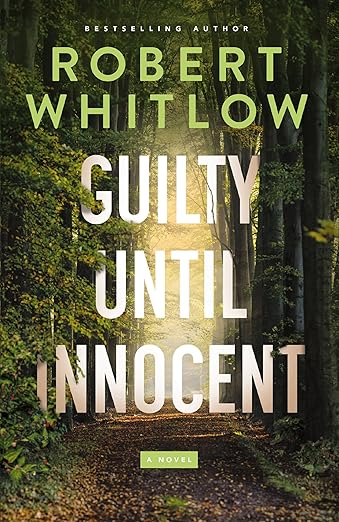
Joe was a talented musician and college student in North Carolina when he stumbled into drug addiction. One night while playing a gig at a bar, Joe got so high on crystal meth he couldn’t recall the evening. The next thing Joe knew, he was in jail, charged with double murder.
During the next twenty-six years in prison, Joe gets clean, emerges as a leader, and becomes wholly committed to God. Joe sees more fellow inmates turn to God, and a prison revival begins.
Ryan is a young attorney whose career got off to a rocky start. He gets another chance when his second cousin, Tom, also an attorney, hires him. Ryan isn’t sure the job will work out, and he has increased financial pressure when his wife, Paige, becomes pregnant.
Tom assigns Ryan as the lead attorney on a case which seems doomed from the start. Joe’s relatives hire the law firm to overturn Joe’s conviction. Just as Ryan begins investigating the old case, Tom has a health crisis and Ryan is on his own. Ryan soon discovers not everyone can be trusted, and he, Paige, and Joe are in danger.
As Ryan tries to determine Joe’s guilt or innocence, he is working through his own relationship with God and a sense of guilt over his father’s death.
Robert Whitlow, an attorney, doesn’t get too technical with the legal aspects of the story, and explains unfamiliar terms and procedures. Whitlow portrays Joe’s Christianity as realistic and natural. Joe prays, and God answers.
I was already a fan of Whitlow’s Christian-themed legal thrillers. If you enjoy this genre, I invite you to get a copy of Guilty Until Innocent. Available now for pre-order. Release date February 4, 2025.
“I received a complimentary copy of this book. Opinions expressed in this review are completely my own.”
@whitlowwriter @ThomasNelson
#NetGalley #ChristianFiction #LegalThriller

Deborah Raney’s Who Touches the Mountains launches a new series, drawing inspiration from Psalm 104:31-34, from which she takes the phrase, The God Who. This passage speaks of praise for God’s glory seen in creation. Raney aptly selected the Blue Ridge Mountains in North Carolina, specifically the scenic area around Asheville encompassing Black Mountain, Chimney Rock, and Montreat, as the setting for her debut book in the series.
Just before the scheduled release of Who Touches the Mountains, Hurricane Helene tore a path of destruction through that region, with catastrophic flooding and loss of life. Raney wondered if allowing publication on the heels of this real-life tragedy would seem insensitive and exploitative. In the end, she decided the book honors the resolve of the area’s residents, and she is donating a portion of the book’s profits toward rebuilding the affected communities.
In Who Touches the Mountains, Raney crafts a tale of loss, grief, romance, and even mystery. The veteran author incorporates inspirational elements into the story in a natural, unobtrusive way, touching on themes of prayer, church attendance, one’s relationship with God, and forgiveness.
For those who have weathered a storm, may you find encouragement in the pages of Raney’s book, as you lift your eyes toward The God Who.
Upcoming titles in The God Who series include Who Stirs Up the Sea, Who Names the Stars, and Who Measures the Oceans.
@AuthorDebRaney #ChristianRomance #ChristianFiction #TheGodWho #Inspirational
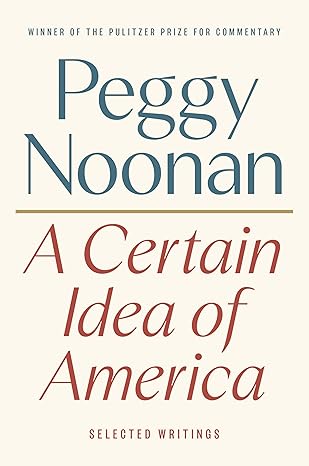
I’ve been a fan of Peggy Noonan since she was a speechwriter for the president known as the “Great Communicator”, back in the 1980s. This book is a collection of her more recent writings culled from her column in the Wall Street Journal.
Noonan discusses people she admired, often paying tribute upon their death. She wades into politics, shaming some and praising others, but never pulling punches. I don’t always agree with her political views, but I respect her well-reasoned opinions.
Noonan writes unashamedly about faith in God and pride in America, standing resolutely for both. She tells us how we have done well, and how we can do better.
In the audiobook version, the author herself reads the Forward.
If you believe there’s a place in today’s world for old-fashioned values, you’ll appreciate Noonan’s essays in A Certain Idea of America.
@Peggynoonannyc @WSJ @penguinaudio
#Portfolio #PenguinRandomHouse #domesticpolitics #bookreview #ACertainIdeaofAmerica

I’m always skeptical when I see #deals boasting a gazillion pieces. Usually, that means multiple tiny split shot, many mini hooks, and lots of little swivels. How do you use all this stuff?
The FONMANG 411/601-Piece Fishing Gear Accessories Kit is a step above all the others. Most importantly, it comes with a 14-page booklet written in English. Not pidgin English where you can tell the author is not a native English speaker, but understandable, grammatically correct English. That’s important to me.
This booklet demonstrates step-by-step how to tie basic fishing knots.
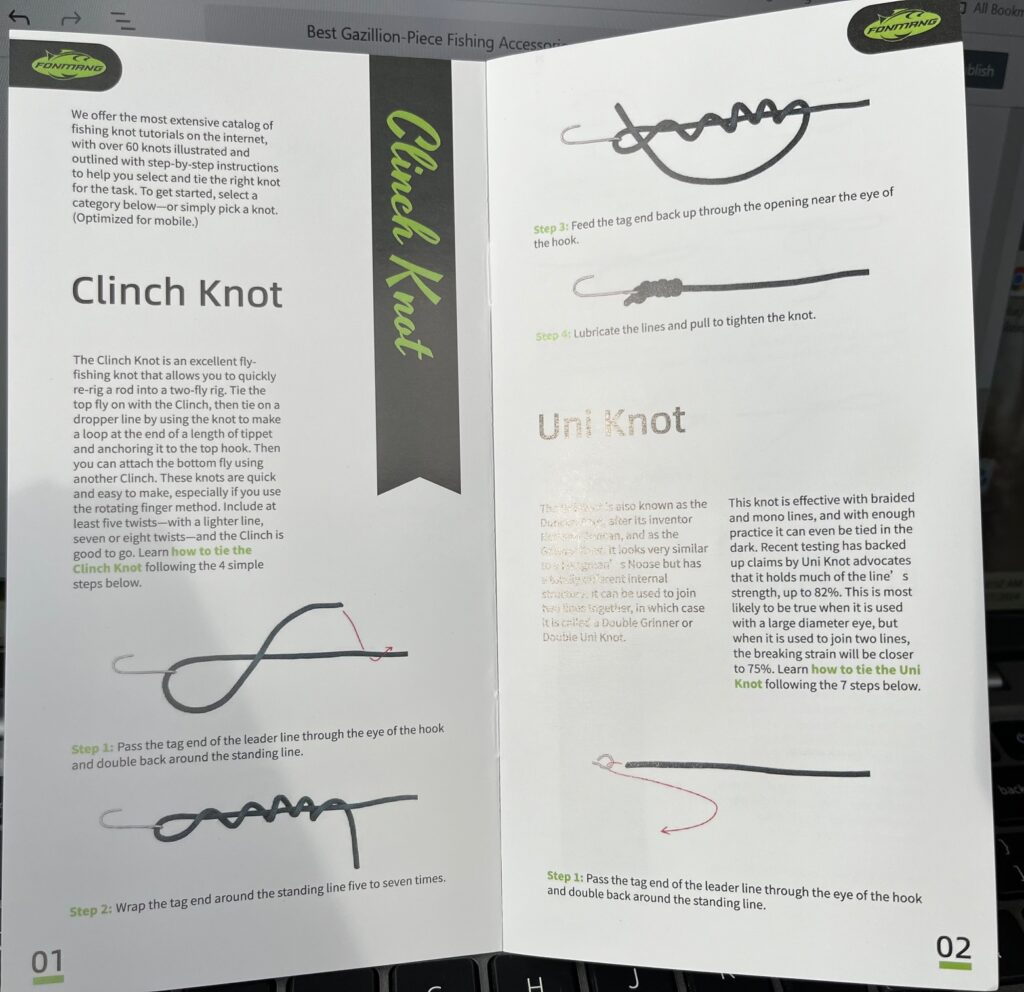
Even better, if you don’t know the Carolina Rig from the Texas Rig, or the Ned Rig from a Jig Rig, this booklet has pictures with all the parts labeled.
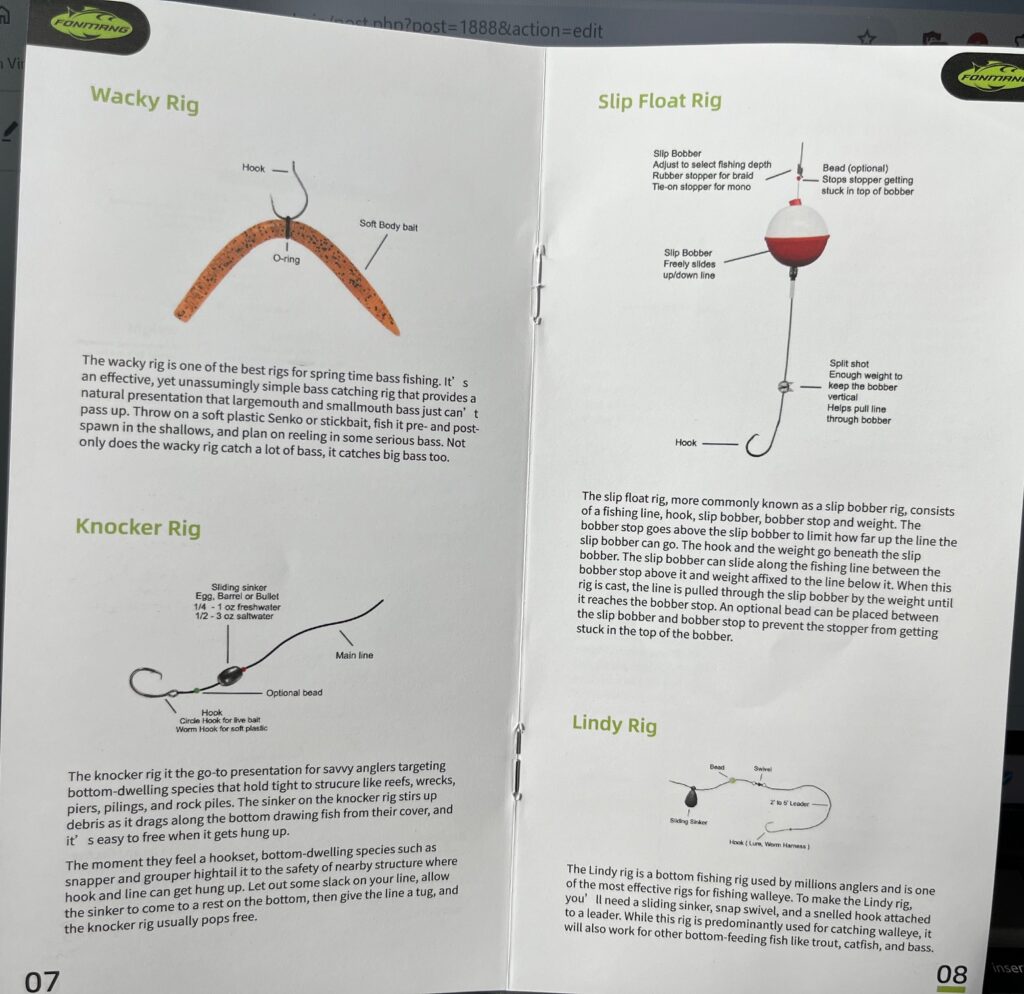
This booklet alone is worth the modest price to me. (Right now this kit is on #sale for #BlackFriday, plus you can take 10% off with a #coupon!)
The two-sided box is handy and has everything you need to tie these rigs and more!
This kit also comes with a #BogaGrip-like tool and a neat pair of #FishingPliers.
If you want a nice starter kit AND the knowledge to use all those little accessories, or you are looking for a #FishingGift for the angler in your life, I recommend The FONMANG 411/601-Piece Fishing Gear Accessories Kit!
#fishinggift #fishingaccessories #BlackFriday #BlackFridayDeal

I tried another web hosting company, but I couldn’t get used to the rigamarole I had to go through to update my site. I’ve returned to Bluehost, and I feel like I’m home again. Shout out to my tech guru Ava for making it happen!
Ahhh! (*props feet on desk, *sips coffee) So good to be home! Drop by often! I look forward to seeing you!
[These Fruit of the Loom Men’s Ribbed Jersey Clogs in the picture are comfortable and warm. My favorite feature is they slip on and off easily. That’s handy when I want to take the dogs outside, or tuck my feet under me while I’m sitting on the couch working on my computer. When I want to get up, I just slip my feet into these cozy slippers.]
@MaryVogelsong.com @BethBirdBooks.com
If you need a computer expert: [email protected]
#HistoricalFiction #ChildrensBooks #ChristianDevotionals #bookreviews #FavoriteFishingPhotos #slippers #dogitems #doggifts #watertoys #waterscooter
I read Michael Shaara’s Killer Angels in college, and discovered how historical fiction could make history more understandable, even exciting to read. Jeff Shaara has followed in his father’s footsteps by authoring several novels in the historical fiction genre. Putting characters in historical WWII battles, the Korean War, the Civil War, and the Revolutionary War opens the imagination to what these conflicts could have been like.
The Shadow of War doesn’t quite make the grade as a historical fiction novel. Perhaps that’s because the Cuban Missile Crisis is from recent history, in my lifetime, and shouldn’t have to be imagined. Why not go with the straight facts? Surely, records of the tense deliberations between Kennedy and his staffers exist.
Perhaps it’s these records Jeff Shaara relied upon to write this book. But instead of painting a broad picture to flesh out scenes and dialogue, I’m left wondering, did it really happen like that?
Thanks to Net Galley and St. Martin’s Press for the digital copy of The Shadow of War: A Novel of the Cuban Missile Crisis, in exchange for my unbiased review.
@StMartinsPress #JeffShaara #CubanMissileCrisis #JFK #1960s
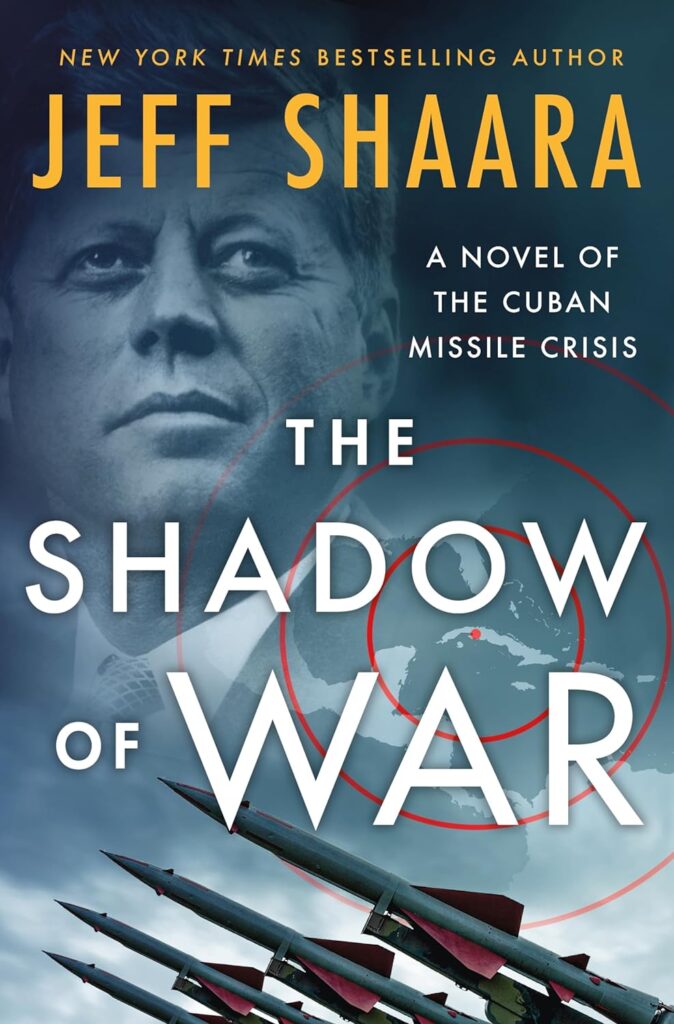
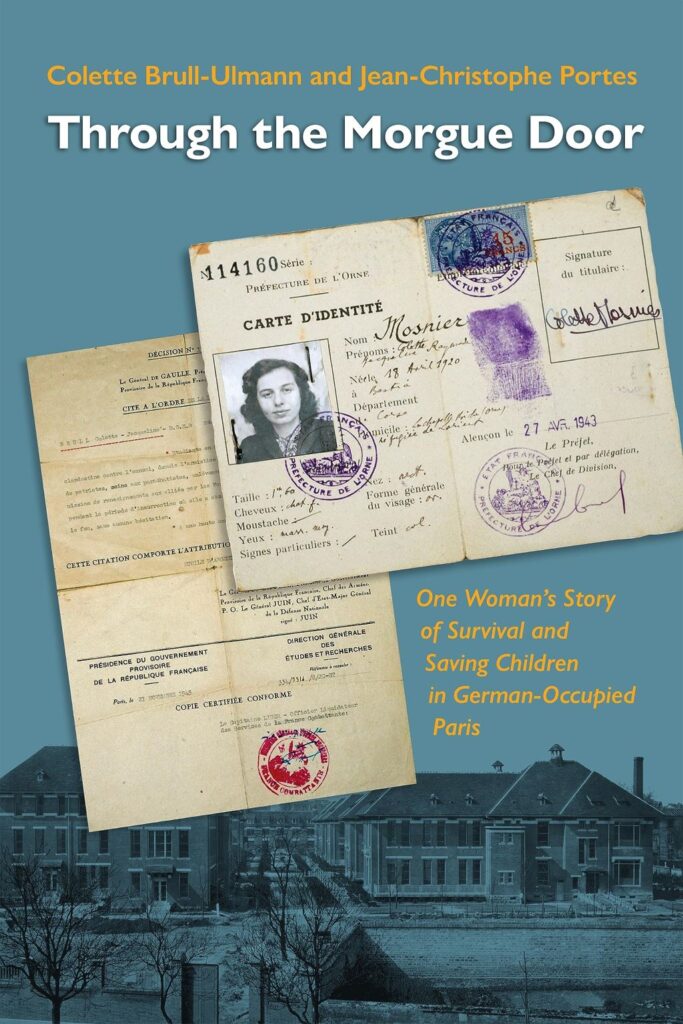
Hitler’s army occupied France like an overturned bottle of ink spilled on a map. Colette Brull-Ulmann was a Jewish medical student working as an intern at the Rothschild Hospital. The Germans brought Jews from the Drancy internment camp to the Rothschild Hospital for treatment of illness and after severe beatings.
The Germans detained Brull-Ulmann’s father for a while in this same camp, and her younger brother and sister left Paris to live in less danger.
Brull-Ulmann became emotionally attached to Danielle, a young girl at the hospital. This was an endearing child, loved by everyone, even the German guards. When the girl recovered, the doctors and nurses found additional reasons the child was “too ill” to return to the camp.
It seemed Jewish women who gave birth at the hospital had a higher than usual number of stillborn babies. In fact, the women gave up their babies at birth to be smuggled to safety. Brull-Ulmann heard it rumored some patients, especially children, were smuggled out of the hospital through the morgue door, the only door left unlocked and unguarded.
Brull-Ulmann was herself called upon to smuggle two children through the morgue door and the dark streets of the Paris night to safety. She details this one mission, although she said she participated in perhaps two others.
A ruthless doctor from the infirmary at Drancy ordered Danielle and several other Rothschild patients to go back to the camp. That was the last Brull-Ulmann saw of the sweet girl. The intern was sure the Germans killed Danielle and the rest of her family in an extermination camp. Brull-Ulmann grieved because she was not able to save Danielle.
Brull-Ulmann went on to secretly treat wounded allies in hiding, and to work for the French Resistance. Although the title, Through the Morgue Door, is intriguing, it reflects only a small part of the book. Brull-Ulmann obsesses over the loss of Danielle, and she devotes much of the book to her grief concerning the girl.
#ThroughtheMorgueDoor #NetGalley #WWII #UniversityofPennsylvaniaPress

New author Alejandro Medina has created a children’s bedtime book to help them overcome their fear of doctors. Medina presents Dr. Bearry, a stuffed bear in scrubs, who looks after children and is there for them to hug in anxious situations. Dr. Bearry guides the child in the nighttime rituals of snuggling in bed, counting sheep, and saying prayers.
Medina geared this brief, 16-page book toward the youngest child’s attention span by employing rhyming verses and muted colors to soothe little ones before falling asleep. Medina used photography with computer enhancements to create the artwork, giving it an illustrative feel. The book includes depictions of children of multiple ethnicities.
Children facing medical situations would benefit from this splendid book. If you wanted to gift it with a Dr. Bearry-like bear, do an online search for bears in scrubs.
The Kindle version of the book is now available, and you can buy the physical format soon, through Amazon and Lulu.
#DrBearry #AlejandroMedina #bedtimestory #medicalanxiety #bearinscrubs #teddybeardoctor @A_J_Medina

Available for pre-order. Release date: March 7, 2023.
This book chronicles the work of Bill Donovan, who became the first Coordinator of Information (COI) before heading up the Office of Strategic Services (OSS), his mad scientist inventor Stanley Lovell, and others who fought dirty for the sake of national security.
President Roosevelt appointed Donovan in 1941 as war in Europe escalated, to collect intelligence related to national security and perform espionage, sabotage and propaganda. The number of personnel in Donovan’s department grew and his responsibilities soared after Japan attacked the American base at Pearl Harbor on December 7, 1941.
Now too large to be under the auspices of the White House, Roosevelt changed the name of Donovan’s organization to the Office of Strategic Services (a precursor to the Central Intelligence Agency), and placed them under the purview of the Joint Chiefs of Staff.
From these humble beginnings, Donovan defended the organization from barbs and quips, some well-deserved. Detractors said Donovan hired the rich and famous to divert them from serving in the armed forces. At a dinner party, Horace Schmahl made fun of Donovan’s agency, saying it was a “Tinker Toy outfit, spying on spies”. Donovan challenged Schmahl, saying he could steal his secret files and blow up his ammunition dump before midnight. Donovan made a discreet phone call to his office. His employees broke into Schmahl’s office and safe, stole his secret information, and planted fake dynamite at his ammunition dump. Donovan got the last laugh when he handed Schmahl the contents of his safe and told him where to find the fake dynamite, all before the dinner party was over.
As the OSS grew, Donovan created several departments to oversee divisions of the operation, including a branch to make lethal gear and gadgets on the order of Q, the fictional scientist who created such devices for James Bond. This group of scientists pursued ridiculous (attaching cats to bombs since cats always land on their feet), barbaric (biological warfare), and even some useful (time-delay detonation) ideas. They considered ways to assassinate foreign leaders and developed a lethal pill for US agents to ingest if captured. There were additional drug experiments, including a plot to spike Hitler’s food with female hormones.
The book mainly covers the time periods just before, during, and after World War II, although it mentions little of John Foster Dulles and Allen Dulles and the CIA’s covert activities. The Dirty Tricks Department addresses the inventors’ moral dilemma of creating devices and tactics to kill, with most justifying it by believing their work would shorten the war.
The book covers a lot of material without becoming overly serious, as may be deduced from the title.
@JohnLisle @StMartinsPress
#NetGalley #covertactions #dirtytricks #WWII #spies #StanleyLovell #BillDonovan #COI #OSS #CIA